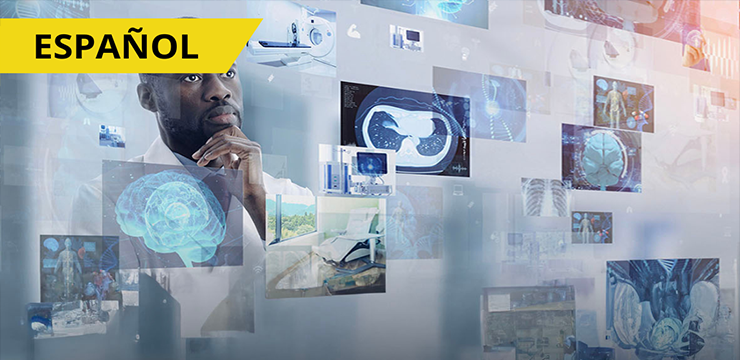Course Preview | Artificial Intelligence in Healthcare: Fundamentals and Applications from MIT xPRO
6:19 min
444
On the other hand, the second fact, contradictory with the first is that if you talk to any doctor about artificial intelligence, you will hear that it is having a fairly moderate impact on day-to-day practices and I'd say, it's fair to estimate life expectancy increases linked to how AI is used in the doctor's room to be almost negligible. My personal opinion, and I hope you join me in it, is that the practical impact of AI in healthcare is about to explode.
And in this course, we will introduce you to this rapidly evolving field by introducing some basics and reviewing the very exciting research being conducted at MIT in this area and give you a few frameworks, so that you can decide how best to use AI in healthcare wherever you are. In the first module, we will introduce a four-stage design process. In the second and third module, Professor Duane Boning will introduce artificial intelligence technologies and show how some of them are being demonstrated in healthcare applications by MIT professors. We will see healthcare applications from MIT professors, Regina Barzilay, Tommi Jaakkola, Elazer Edelman, and Manolis Kellis.
Regina's research is focused on cancer detection by imaging and in the use of machine learning to take advantage of all pathological and genetic information when making medical decisions, especially in oncology. She's also involved in many other areas of AI and healthcare, such as in drug discovery research.
Tommi Jaakkola's research is based on drug discovery as well, including discovering new antibiotics using AI. And we will talk about how this was achieved using graph neural networks.
Elazer Edelman's research is focused on cardiology and we will review how he suggests generating new images using GANs, generative networks. In the technology, they've developed, can be used among other things to train specialists on recognizing many different types of diseases.
Manolis Kellis' research is based on using genetic information to understand where specific diseases such as diabetes, obesity, Parkinson's, or Alzheimer's disease come from in order to treat them by focusing on their origin and most importantly on their root causes. We will review AI technologies and how they are related to the application of all these extraordinary MIT faculty research. In the fourth module, we will illustrate how a full AI application can be designed, by showing an example related to Alzheimer and also COVID-19, essentially the same technology can be applied to both.
In the fifth, we will look at some very exciting research being conducted at MIT in different fields focusing on ingestible robotics. We will provide the framework, the peloton framework to understand the evolution of AI and healthcare technologies and provide an overview of research from MIT professors, Giovanni Traverso, Daniela Rus, Anantha Chandrakasan, Robert Langer, Alex Abramson, Timothy Lu, and Xuanhe Zhao.
Module six is about, Hugh Herr's Bionic Engineering Research group, focusing on the field of prosthesis and exoskeletons. We will see from the beginning the process of creating prosthesis that connect directly with the nervous system and its communication with the brain. We will also look at the design and clinical interventions necessary for the implementation. And during this module, we will also give historical context to the advances that have brought us to where we are today, in those fields.
Finally, in the seventh module, we will review several applications of Wi-fi diagnostics from professors Dina Katabi, Fadel Adib, and Giovanni Traverso, and take a more management view by interviewing Barbara Wixom from the MIT center for Information System Research to explore how you can help your organization thrive in the use of artificial intelligence for medical applications. I hope you really enjoy the journey.











